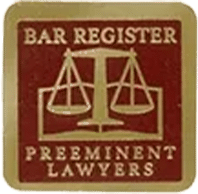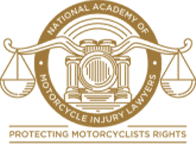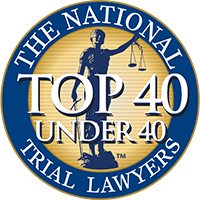
Oklahoma law requires drivers to carry auto insurance that protects them and others in the event of an accident. Minimum auto insurance coverage in Oklahoma includes $25,000 per person and $50,000 per accident of bodily injury liability coverage and $25,000 per accident of property damage liability coverage. Bodily injury and property damage liability coverage protects a driver from financial liability when they injure someone by causing an auto accident. Drivers are personally liable for injuries and damage in excess of their policy limits. That’s why many people choose to purchase higher policy limits than the minimum coverage required by Oklahoma law, which can prevent them or someone on their policy from having to pay out-of-pocket after causing an accident.

Hurt in A Car Accident?
Contact us today for your free & confidential case review. Our team will help you get the compensation that you deserve.
What Optional Types of Coverage Can I Add to My Insurance Policy?
In addition to the state-required bodily injury and property damage liability coverage required under Oklahoma car insurance laws, auto insurance companies offer optional coverages that provide additional protection for policyholders and others covered under their policy. These include:
- Uninsured motorist coverage: Uninsured motorist coverage compensates for injuries an insured party sustains in a motor vehicle accident caused by a driver who does not have bodily injury coverage. Uninsured motorist coverage may also apply in a hit-and-run accident since insurance companies treat unidentified hit-and-run drivers as uninsured. Uninsured motorist coverage does not provide compensation for vehicle or property damage. Although Oklahoma does not require policyholders to have uninsured motorist coverage, insurance companies must provide this coverage unless the policyholder rejects it in writing.
- Underinsured motorist coverage: Underinsured motorist coverage provides an additional avenue for recovering compensation for injuries when an insured’s financial losses exceed the bodily injury policy limits of an at-fault driver’s insurance coverage. This additional coverage on your own policy can help when the other driver only has insurance within the minimum limits.
- Med Pay: Medical payments (Med Pay) coverage provides reimbursement for medical treatment, funeral expenses, and burial costs for occupants of an insured vehicle who sustain injuries or pass away due to an auto accident, regardless of who may have caused the accident.
- Collision coverage: Collision coverage is optional coverage that pays to repair damage that a policyholder’s vehicle sustains in a car crash, regardless of fault. If the insurance company declares a vehicle a total loss, collision coverage can reimburse the owner for the vehicle’s actual cash value.
- Comprehensive coverage: Comprehensive coverage pays for repairs for non-collision damages a vehicle sustains due to vandalism, theft, fire, or severe weather.
- Towing and labor: Towing coverage is additional coverage that can pay for the cost of removing a vehicle that’s been damaged in a crash or becomes disabled.
- Rental car reimbursement: Rental reimbursement can help a policyholder pay for a rental vehicle during the repair period.
- Accidental death indemnity: Accidental death benefits can provide surviving family members or dependents with a death benefit payment after an insured person dies from injuries sustained in an auto accident.
- Special disability benefits: Special disability benefits coverage can provide financial payments to people who sustain disabilities that prevent them from working or performing daily tasks due to car accidents.
Purchasing additional liability insurance or other optional add-ons like comprehensive and collision coverage can increase insurance premiums but provide greater peace of mind if you are ever involved in a collision. An experienced personal injury lawyer can review the car insurance coverage that applies to your case, including your own policy, and explain what it will pay for.
What Is Oklahoma’s New Car Insurance Grace Period?
Most insurance companies offer a “grace period” after you purchase a new vehicle or sell an old vehicle, during which you can notify them of the change to the vehicles on your policy. Depending on the insurance company, the grace period can last from seven to 30 days. Failing to notify your insurer before the end of the grace period could jeopardize your coverage in an accident.
However, if you’re purchasing your first vehicle, you must have an insurance policy in place before driving the vehicle off the lot that fulfills Oklahoma’s minimum auto insurance requirements. Furthermore, if you finance a purchase of a new vehicle, the lending company and dealer likely will only allow you to drive the vehicle off the lot once you’ve switched or added the vehicle onto your car insurance policy. They will likely require you to have full coverage to protect their lien interest in the vehicle.
What Are the Penalties for Driving Without Insurance?
Under Oklahoma’s Motor Vehicle Code, a driver who operates a motor vehicle without carrying valid insurance of the minimum liability coverage or establishing a security bond with the state may face a misdemeanor criminal charge. A conviction carries a penalty of up to 30 days in jail, a fine of up to $250, or both. Furthermore, a person convicted of driving without insurance may have their driving privileges suspended, and police may tow the driver’s vehicle and seize the license plate.
Is Oklahoma a No-Fault Car Insurance State?
Some states follow a no-fault car insurance system in which a person injured in a car accident receives first-party coverage after an accident. No-fault insurance typically pays compensation for your own medical bills and lost wages. Typically, injured drivers and passengers in no-fault insurance states may sue an at-fault driver only after exhausting their no-fault insurance coverage or sustaining qualifying injuries.
However, Oklahoma is an at-fault state for car accidents. This allows an injured driver or passenger to pursue a compensation claim against an at-fault driver immediately after a car accident. In an at-fault system, the driver or drivers responsible for causing an auto accident bear total financial responsibility for the losses that accident victims incur.
In the Sooner State, you can pursue financial compensation for the following after a car crash:
- Medical bills
- Anticipated future medical expenses
- Property damage
- Out-of-pocket expenses
- Funeral costs (in the event of a wrongful death)
- Pain and suffering
- Mental anguish
- Emotional distress
If more than one person is found at fault for the accident, you can pursue compensation against all parties.

Hurt in A Car Accident?
Contact us today for your free & confidential case review. Our team will help you get the compensation that you deserve.
How Do I File an Insurance Claim?
There are several ways to start your insurance claim after an accident. Many insurers now allow injured parties to file a claim via a mobile phone application or online. The insurance company’s mobile application or website will have an electronic form or series of prompts for you to complete to provide the insurance company with information about your claim. You can also contact the relevant insurer by phone.
You should also obtain a copy of the accident report taken by responding offers, as the insurance company will want a copy. After you’ve filed your insurance claim, you should expect an insurance adjuster to contact you to request additional documentation or information.
You can protect your rights and interests by consulting with a car accident lawyer as soon as possible after an accident. An attorney can help you avoid common pitfalls in dealing with the insurance company, such as agreeing to provide a medical release or a recorded statement or signing documents without having them reviewed by an attorney.
Contact an Oklahoma Car Accident Lawyer
The aftermath of a car accident is anxiety-inducing without having to deal with pushy insurance adjusters, too. Fortunately, you don’t have to. Instead, get experienced legal representation from an Oklahoma car accident lawyer who can deal with the insurers while you focus on your recovery. Call Edwards & Patterson Law today for a free, no-obligation case evaluation, and let’s discuss your legal options for recovering compensation.
Visit Our Oklahoma Car Accident Law Offices
Last updated Wednesday, February 12th, 2025














